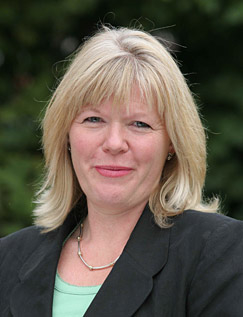Major report calls for 'urgent action' on arts diversity
The Warwick Commission’s ”Enriching Britain” report calls for closer collaboration between culture sectors to improve access

© RSC
A major report has been published today calling for greater complicity across the "ecosystem" of the creative industries to widen access and improve cultural education.
The report, titled Enriching Britain: Culture, Creativity and Growth, argues that the cultural and creative industries are currently "failing to build on our strengths as a creative nation, or realise an acceptable degree of access and participation".
Funded by the Warwick Commission, a project of the University of Warwick, the report was chaired by Vikki Heywood, former executive director of the RSC, with commissioners including Young Vic artistic director David Lan and former Cultural Olympiad director Ruth Mackenzie.
The report highlights that the contribution of the cultural and creative industries to the UK economy has been estimated at £76.9billion, representing five percent of the overall economy. It also has also seen the sharpest rise in employment of any sector.
The analysis warns there is "an urgent need for a national plan for the sector that maximises cultural, economic and social return". And it cautions than any further reduction in government spending will "undermine the ecosystem".
It is damning on the lack of diversity when it comes to careers in the arts: "Levels of access and participation still comprehensively fail to reflect the rich diversity of our population. We are all impoverished as a result, culturally and economically."
Recommendations include The Department for Education and Ofsted working to ensure that all children in England up to the age of 16 receive a "broad cultural education", matching those in Wales and Scotland.
The report also calls for a free "digital public space", enabling people to access the country's "vast culture resources" for free, as well as the creation of "local consortia" to manage regional arts investment.
Vikki Heywood said: "The key message from this report is that the government and the cultural and creative industries need to take a united and coherent approach that guarantees equal access for everyone to a rich cultural education and the opportunity to live a creative life. There are barriers and inequalities in Britain today that prevent this from being a universal human right. This is bad for business and bad for society."
Heywood added at a press event at The Shard this morning that the BBC's upcoming announcement of a major new partnership with arts organisations across the country was a "direct result" of the report's findings. Further details of this initiative will be announced on Thursday.
Reactions to the report from the theatre world
Richard Eyre, former artistic director of the National Theatre:
"All things being equal, the choice of going to opera or ballet or theatre or galleries or bookshops is a free one, open to everyone. But all things aren't equal: the 'choice' of going to the theatre or the opera or an art gallery is a choice that doesn't exist for vast
numbers of people in this country, who, if they feel anything at all about art, feel
disenfranchised. This distinction – between those who enjoy the arts and those who
feel excluded from them – amounts to an absolute divide. It should be the duty of
any government to bridge this divide, by embracing the departments of culture and of
education and investing in the audiences of the future as well as the artists. This
important report makes an irrefutable argument for creating a coherent government
policy for encouraging all aspects of the arts."
Indhu Rubasingham, artistic director of the Tricycle Theatre:
"I wholeheartedly welcome this visionary and timely report that calls for a
transformation in how we create, celebrate and participate in the arts and cultural
activities in this country. The principles of diversity and cultural entitlement for all
are central to me as an artist and as a person. This much needed report sets out with
immense clarity the holistic steps we can take to secure a future for the arts and
creative industries that is more diverse, vibrant and sustainable and therefore
accessible for all."
Tessa Ross, chief executive of the National Theatre:
"The Warwick Commission's Report is a comprehensive review of the ways in which
Britain can gain the very most from its cultural and creative assets. It's a significant
undertaking, created by some of the most experienced figures from the sector. It
makes important and timely points about questions that are critical, to us and to our
colleagues: the diversity of the work on our stages, of our workforce and our
audience, the need to enshrine arts education as an entitlement to all young people,
including the most disadvantaged, and the desire of national organisations to extend
our reach."
Jenny Sealey, artistic director of Graeae:
"The Warwick Commission report is a vital piece of work and needs to be taken
seriously if we are to embrace diversity, inclusion and equality and it without doubt exposes the inhuman fallout should we turn our back on the importance of arts and
culture."













